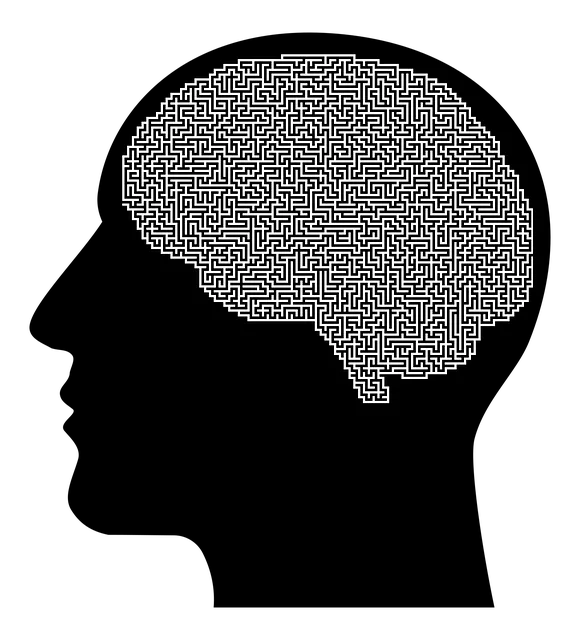Mental wellness app development is booming, offering personalized tools for anxiety management, depression, and stress reduction, integrating practices like mindfulness and cognitive-behavioral therapy. Inspired by Kaiser Permanente's highly-regarded behavioral health services reviews in Centennial, these apps prioritize user experience and feedback, leading to features like mood tracking and adaptive AI support. This approach aims to create a holistic ecosystem of mental wellness resources, fostering communities for emotional well-being similar to organizations like Kaiser Permanente.
“Explore the transformative potential of mental wellness apps with our comprehensive guide. From understanding their core development to evaluating success through case studies like Kaiser Permanente’s Behavioral Health Services, we dissect key strategies. Discover the power of user feedback integration and its impact on app design through Centennial reviews. Additionally, uncover best practices and future trends shaping effective mental health solutions. Leverage insights from these sources to enhance your own app development journey.”
- Understanding Mental Wellness App Development: A Comprehensive Overview
- Kaiser Permanente Behavioral Health Services: A Case Study
- Integrating User Feedback: The Role of Centennial Reviews
- Designing Effective Mental Health Solutions: Best Practices and Future Trends
Understanding Mental Wellness App Development: A Comprehensive Overview

Mental wellness app development is a burgeoning field that leverages technology to support and enhance individual well-being. These apps, designed to cater to a wide range of needs, from managing anxiety and depression to cultivating positive thinking and stress reduction methods, offer accessible and personalized solutions for those seeking improved mental health. As organizations like Kaiser Permanente behavioral health services reviews highlight, these digital tools can significantly impact overall wellness, much like Centennial’s commitment to Inner Strength Development.
By integrating evidence-based practices, such as mindfulness exercises, cognitive behavioral therapy techniques, and progress tracking features, mental wellness apps provide users with valuable resources for self-care. They foster a sense of agency, enabling individuals to take proactive steps towards managing their mental health in the comfort of their own spaces. Moreover, these apps often include communities where users can share experiences and support one another, creating a network of like-minded individuals focused on collective well-being.
Kaiser Permanente Behavioral Health Services: A Case Study

Kaiser Permanente Behavioral Health Services has garnered significant attention and positive Kaiser Permanente behavioral health services reviews Centennial, showcasing its commitment to mental wellness. The organization offers a comprehensive suite of digital tools and resources aimed at improving access to behavioral health support. By leveraging technology, they provide users with personalized solutions for managing stress, anxiety, and depression, fostering positive thinking, and encouraging self-care routine development for better mental health.
Their approach involves designing innovative Mental Health Education Programs that cater to diverse demographics and needs. These programs prioritize evidence-based practices, ensuring effectiveness in treating various mental health conditions. The success of Kaiser Permanente’s initiative highlights the potential of digital interventions in transforming traditional healthcare models, making mental wellness support more accessible and engaging for individuals seeking better emotional well-being.
Integrating User Feedback: The Role of Centennial Reviews

Integrating user feedback is a pivotal step in developing effective mental wellness apps. Specifically, Centennial reviews from Kaiser Permanente behavioral health services offer valuable insights into user experiences and needs. These reviews, which focus on emotional intelligence and compassion cultivation practices, help app developers tailor features to enhance mental wellness. By listening to users’ voices and incorporating their feedback, developers can create tools that resonate with diverse audiences, ensuring the app’s relevance and impact.
Furthermore, these reviews contribute to the ongoing evolution of mental wellness apps. They guide the production of Mental Wellness Podcast Series, for instance, by highlighting themes and formats that users find engaging and beneficial. Ultimately, integrating user feedback fosters a more inclusive and responsive ecosystem around mental health support, making resources like Kaiser Permanente’s behavioral health services even more impactful in people’s lives.
Designing Effective Mental Health Solutions: Best Practices and Future Trends

Designing effective mental health solutions requires a multi-faceted approach that combines evidence-based practices with innovative technology. According to Kaiser Permanente behavioral health services reviews, Centennial, top-rated apps prioritize user experience and personalization. Incorporating features like mood tracking, mindfulness exercises, and cognitive-behavioral therapy (CBT) techniques has proven beneficial for users seeking anxiety relief and burnout prevention strategies for healthcare providers.
Future trends in mental wellness app development focus on integrating artificial intelligence (AI) for more precise recommendations and adaptive support. Mental Health Education Programs Design benefit from AI’s ability to analyze user data and offer tailored interventions, enhancing the overall effectiveness of these programs. By leveraging user feedback and continuous improvement, developers aim to create a holistic ecosystem that addresses various mental health concerns, as reviewed by Kaiser Permanente behavioral health services in Centennial.
Mental wellness app development is a dynamic field, as evidenced by innovative solutions like Kaiser Permanente’s Behavioral Health Services and the power of user feedback through Centennial reviews. By integrating best practices from these models, developers can create effective mental health apps that cater to diverse needs. As we look to the future, embracing emerging trends will be key to enhancing accessibility and impact, ultimately improving mental wellness outcomes for users worldwide.






